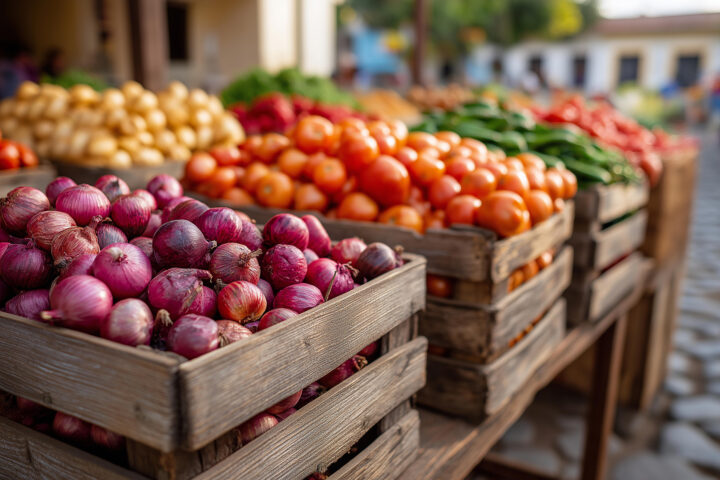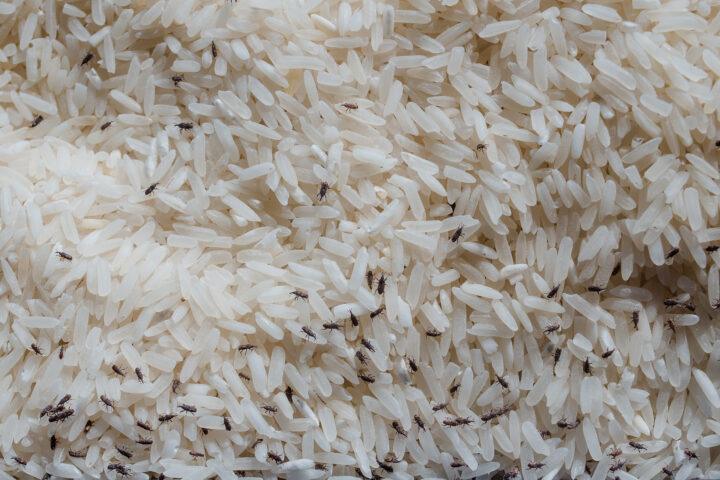
Is the industry exporting banned pesticides?
NGOs and the media repeatedly report on Swiss manufacturers of plant protection products who export pesticides that are banned in Switzerland. They claim that weak regulations in the importing countries are being deliberately exploited. However, this is not the case. Swiss manufacturers adhere to strict international standards when exporting plant protection products. Since approvals are also tailored to agronomic needs, the crops grown and the market, regulation from Switzerland makes no sense.
Tuesday, May 27, 2025
In principle, the regulations of the target market are determining whether a product can be authorized and used. Accordingly, the authorization status in the destination country may not coincide with the one in the exporting country. However, this does not mean that the exports of such products are illegal. Here’s a simple example: Switzerland’s climate zone makes it impossible to cultivate bananas. Bananas are often exposed to different pests and diseases than those found in Switzerland. Accordingly, no plant protection products are registered and authorized for banana production in Switzerland. Active substances are always registered and authorized where they are relevant for the respective crops.
Huge benefits
Plant protection products provide benefits in other countries, and their exports makes a lot of sense, as does their domestic production in Switzerland: Switzerland is an exporting country - for instance, more than 98 per cent of life sciences products are exported. This largest and fastest-growing sector of the Swiss economy is an important element of the prosperity created in Switzerland. And it also contributes to the security of supply of essential goods for the Swiss population in times of crisis. Companies produce here because they can export. The Swiss market alone would be far too small.
High standards
It is often claimed that companies take advantage of weaker regulations in developing countries to sell banned products. This accusation is easily refuted. For example, Syngenta only sells products authorized in at least one OECD country or having a full regulatory data package meeting the high OECD standards. Members ofCropLife International (the international association of the plant science industry), among others Bayer and Syngenta support the FAO and WHO International Code of Conduct on Pesticide Management.
Strict approval procedures
Plant protection products are among the best-researched chemical products. A rigorous approval process based on comprehensive safety and efficacy data is required for product registrations. Research-based agribusiness companies adhere to regulatory requirements and safety standards. Not all products are useful in all agricultural markets.
Solving the real problems
One of the biggest problems in developing and emerging countries in terms of protecting people and the environment is the illegal trade in unauthorised or counterfeit industrial chemicals and plant protection products.
If Parliament and the Federal Council wish to address these urgent risks, they should take action in the area of technical cooperation, as provided for in the Rotterdam Convention on the international trade in certain hazardous chemicals. This is because the Federal Council currently has no specific mandate to take action in target countries (emerging and developing countries) on its own initiative and while respecting the sovereignty of the target countries in order to support these countries in the area of chemicals management (risk assessment, risk management) and, in particular, in combating illegal trade. Greater commitment on the part of Switzerland is also likely to be welcomed internationally.
NGOs and the media repeatedly report on Swiss manufacturers of plant protection products who export pesticides that are banned in Switzerland. They claim that weak regulations in the importing countries are being deliberately exploited. However, this is not the case. Swiss manufacturers comply with strict international standards when exporting plant protection products. As approvals are also tailored to agronomic needs, the crops grown and the market, regulation from Switzerland makes no sense.
False accusation
Swiss manufacturers and exporters are often accused for exporting plant protection products banned in Switzerland “for environmental or health reasons.” Such accusations are based on referring to Annex 1 of the ChemPICO, the Swiss ordinance implementing the Rotterdam Convention. There can be several reasons why products were withdrawn from the Swiss market. The Federal Council has listed these in response to a parliamentary interpellation. The following excerpt is relevant (paragraph 2 from the Federal Council’s response):
2. There are several reasons which may lead to a withdrawal of an authorization. An authorization expires if no application for renewal is submitted. A product approval is withdrawn if it contains an active substance that must be re-evaluated in accordance with the provisions of Article 9 of the Plant Protection Ordinance (PSMV; SR 916.161) and for which no application for re-evaluation has been submitted. An authorization may also be revoked at the request of the authorization holder. Finally, an authorization is revoked if the review shows that the current requirements for the authorization are no longer met. In the latter case, the authorization holder shall be consulted. Based on the Federal Supreme Court decision of 12 February 2018 to grant the environmental protection organizations a right to appeal, these organizations are also given the opportunity to comment on these decrees.
The Rotterdam Convention requires countries that have ratified the Convention to notify exports of substances that are banned or severely restricted in their jurisdiction in order to protect human health and the environment. This obligation also applies to substances that were not affected by a regulatory decision based on a risk assessment, but were withdrawn for other reasons, with indications of a risk to humans or the environment. In such a case , the Federal Office for the Environment (FOEN) decides on the basis of a substance’s classification, which only indicates a specific hazard of a substance but does not take into account the risk due to exposure under realistic conditions of use (see also difference between risk and danger). In its response to the above-mentioned parliamentary interpellation, the Federal Council explains the process for including active substances in Annex 1 of the ChemPICO:
7. Annex 1 of the PIC Ordinance (ChemPICO; SR 814.82) (...) contains active ingredients that are not included in the list of active ingredients approved for use in plant protection products in accordance with Annex 1 of the Plant Protection Ordinance, and that meet the following criteria:
–There is no authorisation of the substances based on an assessment of the risks to human health and the environment;
– the substances have been classified in certain hazard categories with respect to dangers to human health or the environment; and
– it is assumed that an export of these substances may take place.
This means that an active substance may be included in Annex 1 of the ChemPICO for various reasons. The statement that all listed substances "are banned in Switzerland due to a risk to human health and the environment" is incorrect.
Blindspot article
Kindly note:
We, a non-native editorial team value clear and faultless communication. At times we have to prioritize speed over perfection, utilizing tools, that are still learning.
We are deepL sorry for any observed stylistic or spelling errors.
Related articles

Why cutting out synthetic pesticides will reduce food production
The UK’s action plan to reduce pesticide use could backfire, warns agronomist Greg Dawson: overly strict regulations may make domestic farming unprofitable – and increase the United Kingdom’s dependence on imports.

Approval studies for plant protection products are science-based
The approval of plant protection products in Switzerland is subject to strict legal requirements. Ultimately, this approval process is based on scientifically sound studies. These studies are financed by manufacturers, but they must comply with clearly defined governmental requirements and controls. The aim is to ensure reliability and independence.

Grain beetle eats its way through Swiss grain stores
The grain beetle is spreading in Swiss grain stores. Introduced via international trade, it threatens harvests and impairs food quality.

New problem: soft bugs, native pests discover fruit and vegetables
Soft bugs are spreading at lightning speed in fields and greenhouses in southern Germany. These pests are destroying fruit and vegetables and pushing agriculture to its limits. Effective plant protection products must be found urgently to safeguard harvests.

